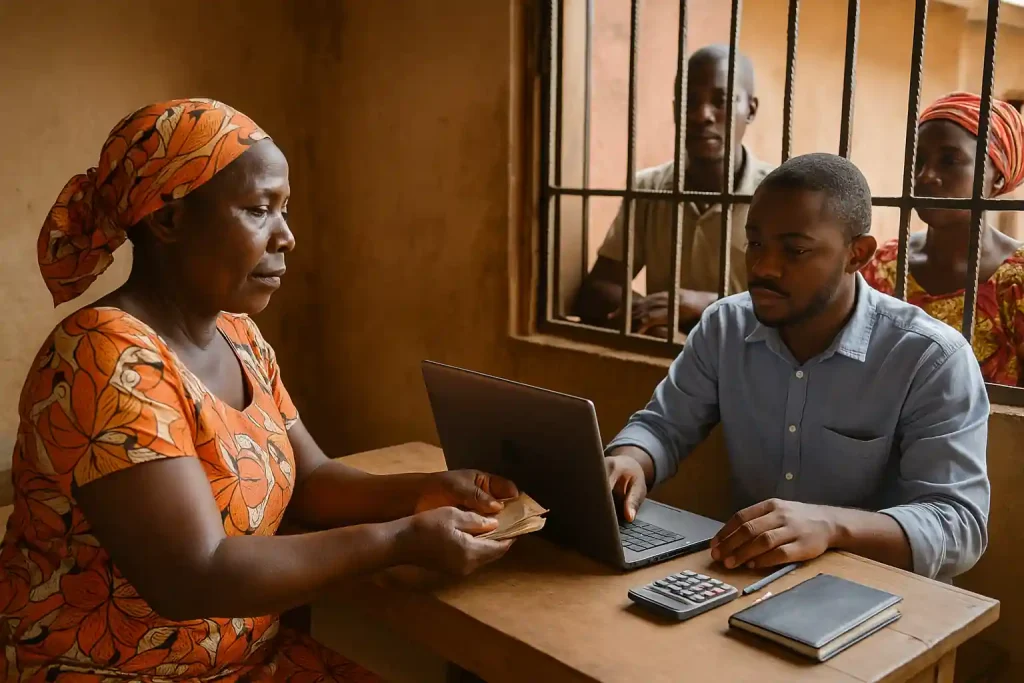Community banks in rural Africa play a crucial role in enhancing financial inclusion and promoting autonomy for local communities. These banks bridge the significant gap in financial services that rural areas often face, providing essential access to savings, loans, and other financial products that empower individuals and small businesses.
The introduction of community banks in rural Africa has transformed the economic landscape by fostering entrepreneurship and supporting sustainable development. By understanding the cultural and economic contexts of the regions they serve, these banks are able to offer personalized services that address local challenges and stimulate economic growth.
Advantages of community banks in rural Africa

Community banks in rural Africa offer numerous advantages, addressing the specific needs of underserved populations with tailored financial solutions. They provide microloans that are crucial for small-scale farmers and entrepreneurs who lack access to conventional banking services.
Moreover, community banks enhance financial literacy by offering education programs that empower individuals with the knowledge to make informed financial decisions. By fostering a savings culture and encouraging responsible borrowing, these banks help build a sustainable economic environment. This empowerment enables communities to invest in infrastructure, education, and health, facilitating long-term development and improving the quality of life.
Challenges faced by community banks
Despite their benefits, community banks in rural Africa face several challenges, including limited access to technology and infrastructure. Many rural areas lack digital connectivity, which hampers the ability of these banks to offer modern financial services and expand their reach. Additionally, there are regulatory hurdles and a lack of skilled workforce, which can impede their growth and operational efficiency.
To overcome these obstacles, partnerships with governmental and non-governmental organizations become essential, providing the necessary support and resources. Collaborative efforts can help implement new technologies and training programs, enhancing the capability of community banks to serve rural populations more effectively.
Integrating technology in community banking
Integrating technology into community banks in rural Africa can revolutionize the delivery of financial services. Digital banking platforms and mobile money solutions offer innovative ways to reach more people, expanding financial inclusion significantly. The implementation of these technologies can also reduce operational costs, making banking services more affordable for low-income communities.
Moreover, technology adoption can facilitate better data management, enabling banks to tailor their services according to the financial needs of each community. This data-driven approach can improve risk assessment and loan processing, leading to higher efficiency and customer satisfaction.
Practical steps for tech integration
To successfully integrate technology, community banks in rural Africa should focus on building robust digital infrastructures. Partnering with tech companies and utilizing mobile platforms can ensure that banking services are accessible even in remote areas. Training staff and customers on the use of digital tools is equally essential, bridging the gap in tech literacy and ensuring a smooth transition.
Furthermore, adopting secure and user-friendly interfaces will encourage more people to engage with digital banking solutions. Ensuring data security and privacy can build trust among users, which is crucial for widespread adoption. By taking these practical steps, community banks can enhance their service delivery, furthering their mission of financial inclusion and autonomy.
The future of community banks in rural Africa
Community banks in rural Africa represent a promising future for financial inclusion and economic growth. By continually adapting to the evolving needs of local communities and integrating innovative solutions, these banks can sustain their positive impact. The ongoing support from stakeholders and investments in capacity-building will ensure that community banks remain integral to the financial ecosystem of rural Africa.
Looking ahead, the focus must remain on nurturing partnerships and embracing technology to unlock new opportunities for growth. By doing so, community banks can continue to empower individuals and businesses, building resilient economies that thrive in the face of challenges.



